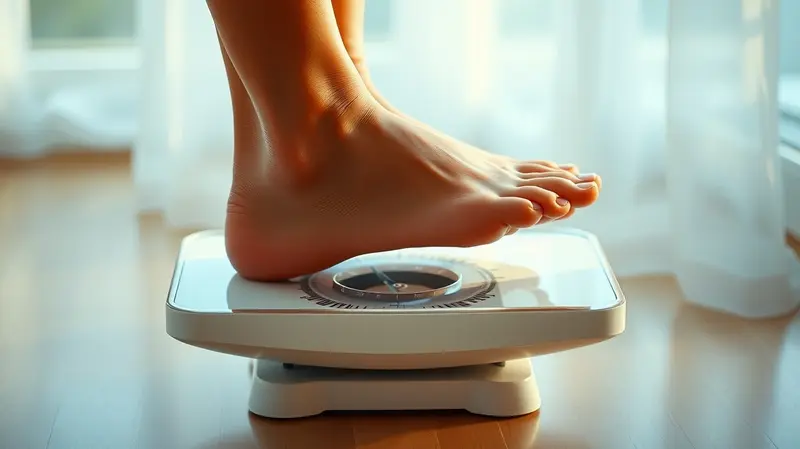Weight Loss Affect Your Period Understanding?
Weight changes can influence a person’s menstrual cycle in different ways. Gaining or losing weight might help make irregular periods more regular, or it could cause periods to become less frequent or even stop. The effects depend on the amount of weight changed and the person’s starting point.

A normal menstrual cycle usually lasts about 24 to 38 days, with most cycles averaging 28 days. Periods typically last between two and seven days. People who are significantly overweight or underweight often experience more irregular cycles.
Key Takeaways
- Weight changes can affect menstrual cycle regularity.
- Menstrual cycles and periods have typical length ranges.
- Being very overweight or underweight increases the chance of irregular periods.
Understanding Healthy Weight Ranges

A healthy weight is often checked using Body Mass Index (BMI). This number estimates how much body fat a person has based on their weight and height.
To find BMI, a person first measures their weight and height. Then, they square their height in inches and divide their weight by that number. Finally, they multiply the result by 703. For example, someone who weighs 150 pounds and is 65 inches tall would have a BMI of about 24.96.
BMI numbers fall into different groups:
| Weight Category | BMI Range |
|---|---|
| Underweight | Less than 18.5 |
| Healthy Weight | 18.5 to 24.9 |
| Overweight | 25 to 29.9 |
| Obese | 30 or higher |
Though BMI is a quick way to check weight status, it does not consider muscle, bone, or other factors like age or ethnicity. Still, it remains a common tool for health checks.
How Body Weight Influences the Menstrual Cycle

Body weight plays a key role in controlling the menstrual cycle. The cycle depends on hormones that come from the brain and ovaries working together.
- Low body fat can cause hormone changes that stop ovulation, leading to missed periods.
- Excess body fat can also disrupt hormones, causing irregular or heavy periods.
- Quick weight changes can make menstrual cycles unpredictable.
Maintaining a healthy weight helps keep hormone levels balanced. This balance supports regular ovulation and consistent periods. When someone is very underweight or overweight and not having periods, reaching a healthier weight often helps restart normal cycles.
Effects of Weight Gain

Irregular or Missing Periods
When a person gains enough weight to move from normal to overweight or obese, their menstrual cycle can become irregular or stop altogether. Extra body fat increases estrogen levels, which can prevent ovulation and cause missed periods. This hormonal imbalance raises the risk of certain cancers such as breast and uterine cancer.
A common reason for missed periods in those who are overweight is a condition called polycystic ovary syndrome (PCOS). PCOS causes the ovaries to make too many male hormones, which disrupts the menstrual cycle. Higher body mass index (BMI), especially over 35, makes missing periods more likely. In some cases, periods may stop completely, a condition called secondary amenorrhea.
Increased Menstrual Bleeding
Weight gain leading to obesity can also cause periods to be heavier and longer than usual. This happens because inflammation linked to obesity slows the healing of the uterus lining and leads to more bleeding during menstruation.
Heavy periods mean bleeding that lasts over seven days or is so heavy that pads or tampons need to be changed every two hours or less. Blood clots bigger than a quarter size are also a sign of heavy bleeding.
If heavy periods are left untreated, they can cause iron-deficiency anemia. Symptoms of anemia include feeling very tired and weak. It is important to see a doctor if experiencing heavy menstrual bleeding.
Restoring a Healthy Cycle
For those who are underweight and miss periods, gaining weight can help bring their cycle back to normal. Low body weight often results from not eating enough, exercising too much, or illness, which causes stress on the body and lowers estrogen levels.
Gaining weight reduces this stress and allows ovulation to resume. This leads to regular menstrual cycles and improves estrogen production, which is important for strong bones. Therefore, returning to a healthy weight supports normal menstrual function.
Summary Table: Effects of Weight Gain on Menstrual Cycle
| Effect | Cause | Impact |
|---|---|---|
| Irregular or Missing Periods | Extra fat raises estrogen and PCOS risk | Missed cycles, higher cancer risk |
| Heavier Periods | Inflammation delays uterus healing | Long, heavy bleeding, anemia risk |
| Restored Cycle | Weight gain reduces body stress | Normal periods, better hormone balance, bone health |
Effects of Losing Weight
Changes in Period Frequency and Flow
When a person loses weight, periods can become lighter and happen less often. This usually happens if the weight loss is quick or comes from eating much less and exercising a lot. These changes can cause the body to produce different hormone levels, which affect the menstrual cycle.
| Factors Affecting Periods After Weight Loss |
|---|
| Rapid weight loss |
| Very low calorie intake |
| High-intensity exercise |
| Hormonal changes |
Missing Periods Due to Low Body Weight
Losing too much weight may stop periods completely, a condition known as amenorrhea. This means no periods for three months or more, without pregnancy. It happens because low body fat lowers estrogen, which stops ovulation. Without ovulation, pregnancy is not possible.
Amenorrhea can also cause other problems such as weak bones due to low estrogen. Some signs linked to this condition include:
- Acne (often tied to hormonal issues like PCOS)
- Extra facial hair (also linked to PCOS)
- Hair thinning or loss
- Headaches
- Pelvic discomfort
- Changes in vision
Maintaining a healthy balance in body weight is important for regular menstrual cycles and overall reproductive health.
Treatment
Managing Your Health at Home
Adjusting weight to reach a healthy range can help balance hormones. For those who are overweight, focusing on fat loss while keeping muscle is essential. For underweight individuals, gaining muscle rather than just fat is important. Before starting any weight change plan, consulting health professionals such as doctors, dietitians, or trainers is recommended. They can offer advice tailored to individual needs and avoid risks.
Knowing When to Get Medical Help
If there is unexpected weight loss or gain, it is important to visit a healthcare provider to check for underlying causes. When efforts to change weight through diet and exercise do not work, medical evaluation may reveal metabolic or other health disorders. Some conditions need medication or different treatments, including physical therapy, especially if exercise is tough due to other health problems.
Struggling with eating habits can also affect weight and hormone balance. Eating disorders, like anorexia, bulimia, or binge eating, require professional care. Those who suspect an eating disorder should seek help from specialists. Early treatment can improve both physical and mental well-being.
| Signs to See a Doctor | Possible Reasons |
|---|---|
| Unexplained rapid weight changes | Metabolic issues, illness |
| Difficulty losing weight despite effort | Hormonal problems, metabolic disorders |
| Trouble following diet or exercise | Eating disorders or physical limits |
| Stopped or irregular periods | Hormonal imbalance or health conditions |
A Word From Verywell
Common Inquiries Answered
Many people notice changes in their body weight around their menstrual cycle. These fluctuations often result from hormone levels rising and falling, which can cause the body to hold extra water. Constipation linked to these hormonal shifts may also make someone feel bloated or heavier than usual.
It is possible for weight loss to affect the menstrual cycle. Losing a lot of weight too fast might stop ovulation. This can lead to missing periods and difficulties in becoming pregnant. Consulting a healthcare provider is important if periods stop suddenly or become irregular.
Menstrual cramps can be more common in people who are either underweight or overweight. These cramps can be quite painful and may disrupt daily activities or work. Managing a healthy weight might help reduce the severity of these symptoms.
Frequently Asked Questions
Can losing weight quickly affect menstrual bleeding?
Losing a lot of weight in a short time can change menstrual bleeding. Periods may become lighter, heavier, or stop for some time. This happens because the body needs enough fat and hormones to keep a regular cycle.
How can someone get their period back after big weight loss?
To restore a regular cycle, a balanced diet and steady weight gain are important. Reducing stress, getting enough sleep, and avoiding extreme exercise also help. Sometimes, a doctor might suggest treatment if periods don’t return.
What is the link between menstrual changes and weight loss during menstruation?
Weight loss can change hormone levels that control the cycle. This can cause irregular periods, missed cycles, or spotting. The body may stop ovulating if it feels it does not have enough energy.
Is it normal to have spotting between periods after losing weight?
Spotting between periods can happen after weight loss. It may be caused by hormone imbalances or changes in how the body reacts to weight. However, if spotting continues, it’s best to see a healthcare provider.
What signs show that periods are irregular due to weight changes?
Signs include missed periods, very light or heavy bleeding, spotting, and cycles that are shorter or longer than usual. These changes can mean the menstrual system is not balanced.
How does changing diet affect the timing and regularity of periods?
Diet changes that reduce calories or fat too much can delay or stop periods. Eating enough nutrients supports hormone production and cycle regularity. Slow, healthy changes in diet are less likely to disrupt periods.
Interesting Links
Social Media
Instagram: https://www.instagram.com/newofficialwellness/
Facebook: https://www.facebook.com/people/Well-Health-Guide
Youtube: https://www.youtube.com/officialwellness

